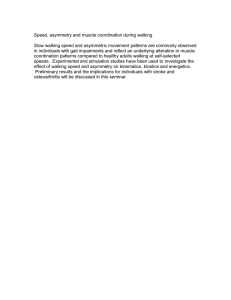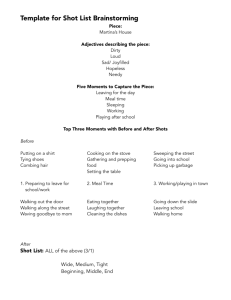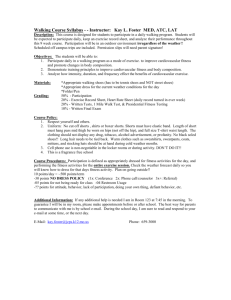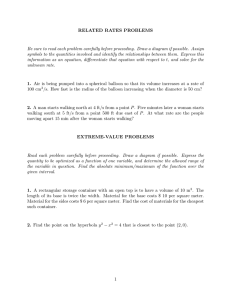Baton Rouge Community College Academic Affairs Master Syllabus
advertisement
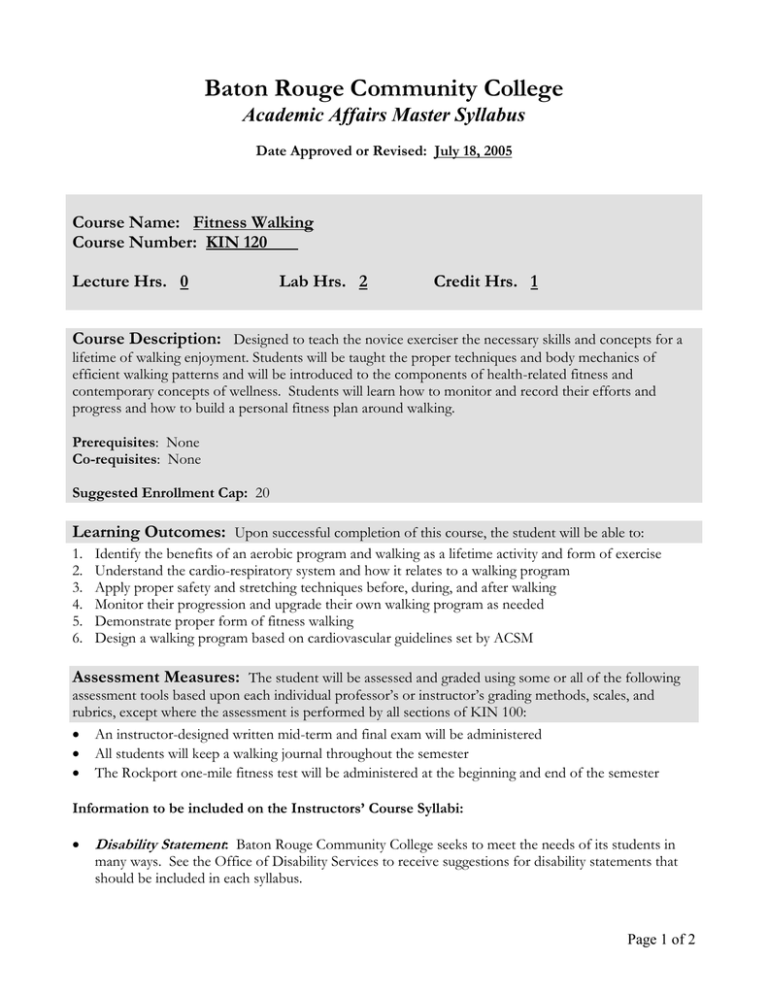
Baton Rouge Community College Academic Affairs Master Syllabus Date Approved or Revised: July 18, 2005 Course Name: Fitness Walking Course Number: KIN 120 Lecture Hrs. 0 Lab Hrs. 2 Credit Hrs. 1 Course Description: Designed to teach the novice exerciser the necessary skills and concepts for a lifetime of walking enjoyment. Students will be taught the proper techniques and body mechanics of efficient walking patterns and will be introduced to the components of health-related fitness and contemporary concepts of wellness. Students will learn how to monitor and record their efforts and progress and how to build a personal fitness plan around walking. Prerequisites: None Co-requisites: None Suggested Enrollment Cap: 20 Learning Outcomes: Upon successful completion of this course, the student will be able to: 1. 2. 3. 4. 5. 6. Identify the benefits of an aerobic program and walking as a lifetime activity and form of exercise Understand the cardio-respiratory system and how it relates to a walking program Apply proper safety and stretching techniques before, during, and after walking Monitor their progression and upgrade their own walking program as needed Demonstrate proper form of fitness walking Design a walking program based on cardiovascular guidelines set by ACSM Assessment Measures: The student will be assessed and graded using some or all of the following assessment tools based upon each individual professor’s or instructor’s grading methods, scales, and rubrics, except where the assessment is performed by all sections of KIN 100: An instructor-designed written mid-term and final exam will be administered All students will keep a walking journal throughout the semester The Rockport one-mile fitness test will be administered at the beginning and end of the semester Information to be included on the Instructors’ Course Syllabi: Disability Statement: Baton Rouge Community College seeks to meet the needs of its students in many ways. See the Office of Disability Services to receive suggestions for disability statements that should be included in each syllabus. Page 1 of 2 Grading: The College grading policy should be included in the course syllabus. Any special practices should also go here. This should include the instructor’s and/or the department’s policy for make-up work. For example in a speech course, “Speeches not given on due date will receive no grade higher than a sixty” or “Make-up work will not be accepted after the last day of class.” Attendance Policy: Include the overall attendance policy of the college. Instructors may want to add additional information in individual syllabi to meet the needs of their courses. General Policies: Instructors’ policy on the use of things such as beepers and cell phones and/or hand held programmable calculators should be covered in this section. Cheating and Plagiarism: This must be included in all syllabi and should include the penalties for incidents in a given class. Students should have a clear idea of what constitutes cheating in a given course. Safety Concerns: In some programs this may be a major issue. For example, “No student will be allowed in the safety lab without safety glasses.” General statements such as, “Items that may be harmful to one’s self or others should not be brought to class.” Library/ Learning Resources: Since the development of the total person is part of our mission, assignments in the library and/or the Learning Resources Center should be included to assist students in enhancing skills and in using resources. Students should be encouraged to use the library for reading enjoyment as part of lifelong learning. Expanded Course Outline: I. Lectures A. Importance and benefits of exercise B. Lifestyle activities and choices C. All components of a fitness program 1. Muscular strength and endurance 2. Flexibility 3. Cardiovascular/Aerobic D. Cardiovascular training guidelines and program design E. Cardio respiratory system F. Safety rules G. Proper attire II. Demonstrations A. Proper walking form B. Flexibility routine III. Skills activities A. Participation in walking program B. Personal walking journal C. Warm-up and cool-down routines D. Flexibility routines E. Cardiovascular testing Page 2 of 2
